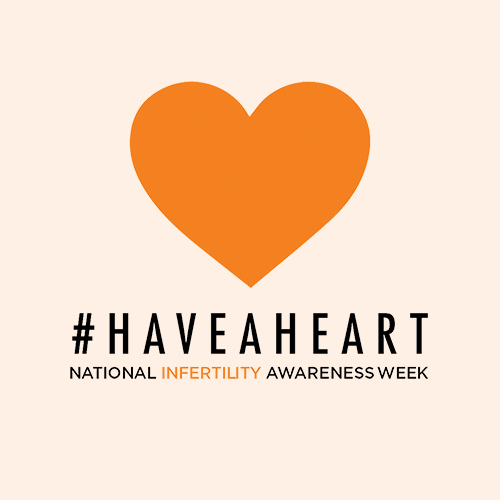In honor of National Infertility Awareness Week, RSC case manager shares her personal infertility story
The week of April 24-30, 2016, is National Infertility Awareness Week. I want to share a personal account of my struggle with infertility and how it allowed me to learn about my body and better serve the patients that I support as an in vitro fertilization (IVF) case manager at the Reproductive Science Center.
When I tried to conceive, I learned many things that I didn’t previously know about my body. One of the biggest discoveries I made was learning that I have polycystic ovary syndrome (PCOS). PCOS is a condition in which a woman’s ovaries may contain cysts in the follicles where eggs develop.
Within these follicles the egg does not grow normally, impacting a woman’s reproductive functioning. Specifically, for me, the condition made it difficult to track my period and confirm ovulation.
Looks can be deceiving
When I first started trying to get pregnant, everything looked good. I had done some hormone testing and everything looked normal. In fact, I had excellent levels. I had even tried ovulation testing, although it didn’t do much good because my cycles were long and irregular. I was so surprised when months passed and I still wasn’t pregnant.
After a year of trying with no results, my husband and I decided to visit our infertility specialist and seek their recommendation. We discussed trying Clomid, a fertility drug used to produce reproductive hormones, in conjunction with timed intercourse.
At the time, I was still tracking my cycles by using sonography scans, an imaging procedure that allows you to see the inside of the body, in hopes of getting pregnant without any assistance. The sonography showed that a follicle in my ovary was very small (only measuring 13 mm). Likely too small to grow an egg.
When another sonography showed that I had already ovulated, I was devastated. I still wanted to get pregnant on my own, but at this point, I had given up and was ready to begin Clomid with my next period.
In my frustration, I reached out to RSC’s Dr. Mary Hinckley for advice. I have a tendency to lean more toward female physicians, so approaching Dr. Hinckley was very natural. Dr. Hinckley had an optimistic response to my scenario and thought that there may still have been a chance that I could get pregnant without medication.
Point break
At that point, I had completely given up on the possibility of getting pregnant without seeking further assistance. Even though I work as a case manager in an infertility office and know the ins and outs of fertility, I could not believe this was happening to me. Time went by and each month I waited for my period.
One morning, I walked into work and immediately felt nauseous. I couldn’t figure out why I kept feeling like I was going to be sick. Then it hit me – could I be pregnant?
I did a urine pregnancy test and human chorionic gonadotropin (hCG) blood test (tests for embryonic hormone presence) and both confirmed the good news. I was pregnant. When I completely gave up on my follicle, Dr. Hinckley didn’t. To this day, I am still amazed that I ovulated with a small follicle and became pregnant.
This experience did shed some light on how the patients that I help must feel. I now see that planning dates, knowing your body’s exact timing, and the process of it all can consume you. I can also see how this feeling might be magnified once patients need IVF, donors, or other assisted reproductive technology procedures.
I would recommend to anyone trying to become pregnant to not give up. Babies are so worth it. I think babies are even more precious once you accept and follow the fertility journey to have them.





